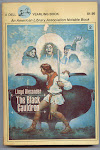The poet John Keats, whose parents died when he was a child, was heir to two small fortunes. However, his adult life was spent in grinding poverty. He borrowed money from friends, just to be able to live. He died of tuberculosis at age 25, probably contracted while caring for his brother who died of the disease.
After his mother died, Keats lived with his grandmother, who appointed two men to be his guardians and mentors. At least one of these men knew that two of Keats's deceased relatives had left him substantial amounts of money, to be available when he reached the age of 21. However, the guardian(s) never told him, or anyone close to him, of the bequests, and no inquiries were made about the money.
He was the greatest of the late Romantic poets, achieving that stature in writing poetry for approximately five years, and dying at the youngest age of them all. Shelley lived to age 30 and Byron to 36.
Keats wrote, "Oh, for ten years!" to write down all that was in his mind, but he only got five.
It's amazing to contemplate how prolific these poets were, in spite of various hardships, troubles, and short lives. Byron wrote book-length poems, and several plays in verse. Shelley is regarded by many as the greatest poet, but in my opinion his works are marred by archaic language and a certain distance between the poet and the emotions that the works should evoke.
Many of Byron's poems are marred, of course, by facileness, flippancy and haste.
Subscribe to:
Post Comments (Atom)














No comments:
Post a Comment